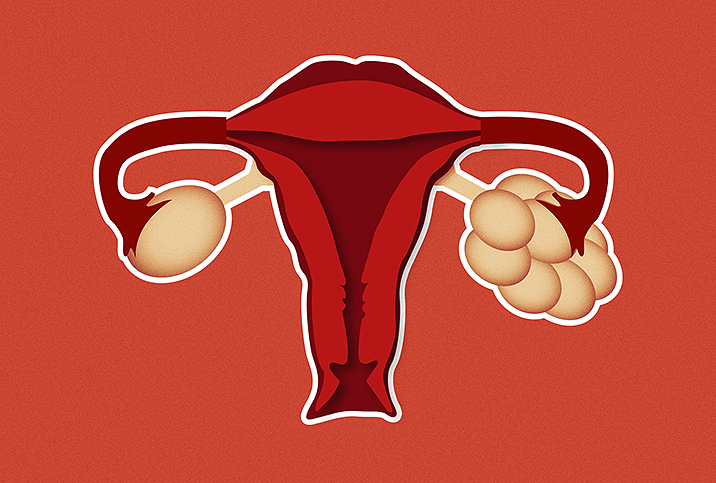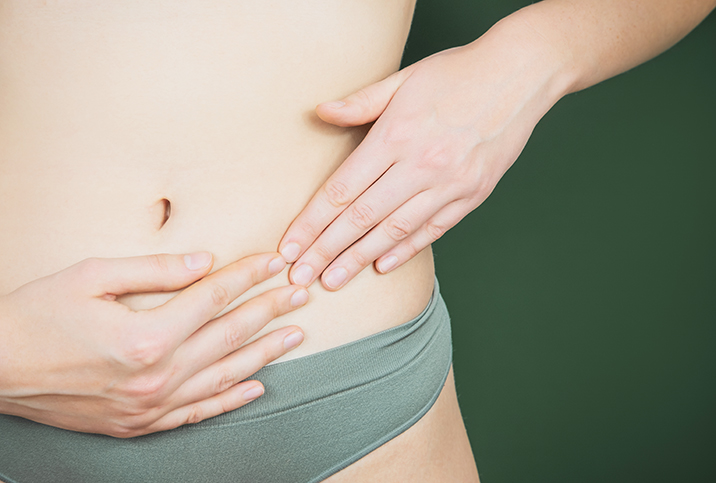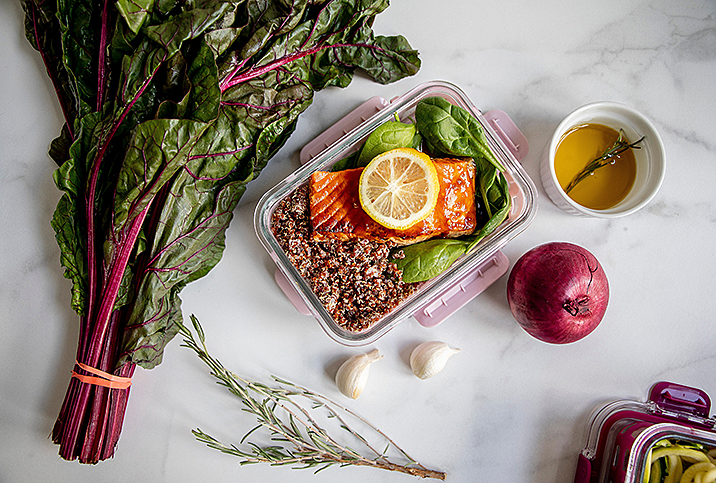What It's Like to Have PCOS

Sweet 16: That's the age I was the summer I noticed my body was starting to feel different. I'm not talking about the regular stuff—getting taller and getting boobs—that comes during a normal bout of puberty. But most 16-year-olds weren't missing their periods for a year, growing thick facial hair and gaining more than 20 pounds. After going to the doctor, I was diagnosed with a condition called polycystic ovary syndrome, or PCOS for short.
PCOS affects about 1 in 10 women of childbearing age in the United States, according to the Office on Women's Health of the U.S. Department of Health and Human Services.
To date, there is still no known cause or cure. However, researchers believe genetics play a major role in determining who contracts it. A 2001 University of Alabama study indicated that 24 percent of the women who have PCOS have a mother with PCOS and 32 percent have a sister with the condition.
Symptoms of PCOS include shorter period cycles, heavy acne with scarring, significant weight gain even with a consistent diet, clumps of hair coming out in the shower and frequent migraines. A 2012 study published in Fertility and Sterility indicated that 65 to 70 percent of women with PCOS have insulin resistance, which means the cells in their bodies aren't able to convert the glucose from their blood into energy. When this happens, the body is triggered to manufacture more male hormones—or androgen hormones—to produce more testosterone. A woman's levels of estrogen on PCOS can be extremely low and the male hormones, in a way, take over.
This is where facial hair comes into the picture
Androgen hormones give men their male characteristics, including facial hair. "For women who don’t have PCOS, peach fuzz is normal," said Joshua Zeichner, M.D., an associate professor of dermatology in New York City. "But with PCOS and increased androgen hormones, the hormones trigger hair to grow darker and thicker."
I've had issues with facial hair before I was even diagnosed at 13. I am now 31 and am constantly embarrassed by it. Every few days I shave when I feel it start to prickle on my face. I am currently on birth control that includes the female hormones estrogen and progestin. Birth controls containing these hormones aren't the norm because they can cause weight gain and mood changes. But I am taking them to help eliminate my facial hair and make my periods more regular. I have taken this birth control for six months, but the facial hair isn't completely gone, though it is less thick now and has become less of a nuisance.
Hormones mess with fertility, too
Given that estrogen plays a key role in women's fertility, this hormonal imbalance in the body causes the growth and release of eggs to stagnate, resulting in problems with ovulation. Because of this, PCOS is also the No. 1 cause of infertility for women. Between 70 and 80 percent of people with PCOS face fertility problems, according to a 2015 San Paulo study, and approximately 90 to 95 percent of patients with ovulation issues seeking infertility treatments have been diagnosed with PCOS, according to a 2015 study published in the American Diabetes Association.
How does food impact PCOS?
For those struggling with PCOS, there are a few simple steps you can take to combat infertility. Fertility and ovulation issues can be improved by even a 10 percent weight loss, various studies have shown. A low-sugar diet full of complex carbohydrates and unprocessed food is a good place to start. Include whole-grain bread, salmon, cashews, apples and spinach in your diet.
Everyone has an individualized plan, so these are just the basics. Working with your doctor or dietician can create a more specific plan for your needs. Getting a good night's rest is important, and drinking lots of water can help your bodily functions improve.
With all of these fluctuations, depression is no stranger
The hormonal disruption and physical changes brought on by PCOS can have a bigger impact than you might realize, leading to depression and anxiety, two things I've struggled with since initially being diagnosed as a teen. When our systems are thrown out of sync due to too many or too few hormones, our whole body is affected. For me, PCOS can be exhausting. The balance of taking care of my mental health, dealing with weight gain over light meals, drinking enough water and maintaining healthy relationships can feel daunting enough. PCOS makes things harder.
In addition to medication and professional treatment, if you want to improve your mood, you need to start moving. The physical activity or workout regime you choose doesn't have to be high impact—a body with PCOS actually reacts better to less intense forms of exercise such as walking, swimming or yoga. Exercising three days a week is a great way to help with ovulation, insulin resistance and fighting cravings for carbohydrates and sugar.
Overall, living with PCOS and the side effects can take a toll on your body and psyche. It's a defining moment in many patients' lives—whether it's the impact of infertility or physical ailments. While simple lifestyle choices won't cure PCOS, you can still have a happy, fulfilling life. I can't imagine my life without PCOS, but I am still happy and functional.


















